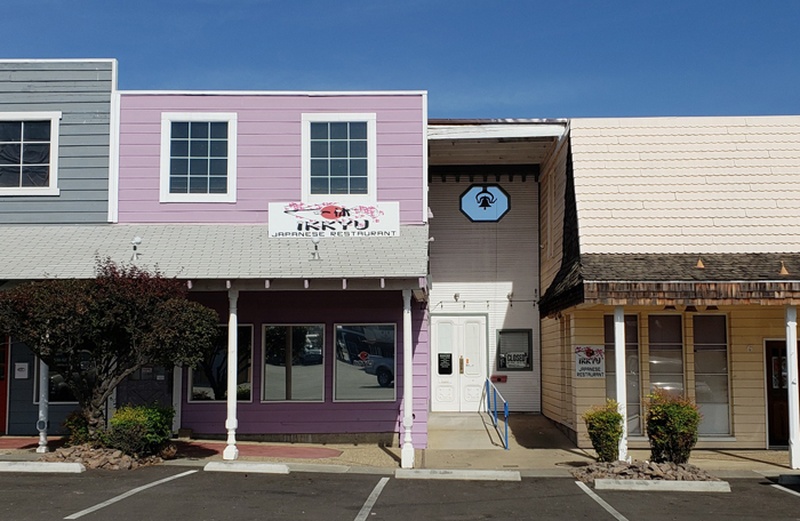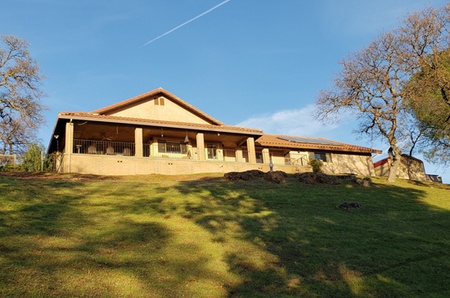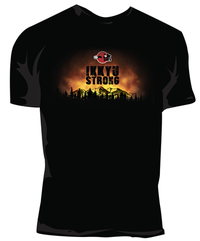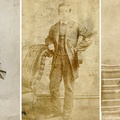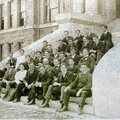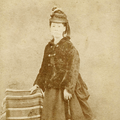After fleeing for their lives in Camp Fire, couple reopens restaurant 60 miles away in Red Bluff.
“It was like an ENDLESS TUNNEL. I felt like I was dropped into deep darkness. But looking back, it can’t be helped. I can start over again as long as I am alive.”
Tomoyo and Shigeo Kojima lost everything in the Camp Fire on Nov. 8 last year. They had their own house and one rental house, and owned a Japanese restaurant in Paradise but everything was burned out.
They were forced to evacuate from their home and moved to Red Bluff, Tehama County, located about 60 miles north of Paradise.
They recently reopened their restaurant in Red Bluff.
Six months have passed since the wildfire broke out, and the couple spoke with The Rafu about their struggle after the wildfire and their new life.
* * * * *
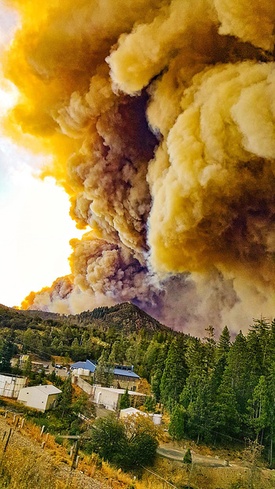
The Camp Fire is known as the deadliest and most destructive wildfire in California history. It caused at least 85 fatalities and burned more than 150,000 acres.
Tomoyo and Shigeo have started their new life in Red Bluff, which has a population of about 14,000.
Right after the wildfire, they stayed at motel in Williams for 15 days. After that, they bought a fifth-wheel camper and lived at an RV park in Red Bluff.
About one month after the wildfire, residents were given permission to return to Paradise for only 24 hours, and they returned to their homes. They expected to find their belongings and memories; however, what they could find was only ash.
“As I Imagined, Nothing Was Left”
The landmarks of the town were all gone, so while they were headed to their home, they didn’t know where to turn.
After that, Tomoyo had an opportunity to take her mother-in-law to Paradise. However, on the way she suddenly experienced tremors and couldn’t drive.
“I thought I was okay, but after that incident, I thought I can’t go to Paradise anymore,” she said. “Paradise is now a town where only traffic lights turn red and green and nobody is there.”
Although Tomoyo always thought that she wanted to return to Paradise someday, she realized that it is not the town she knows anymore.
Water pollution is getting serious in Paradise now. Residents are not allowed to use water, so even people who still have their houses can’t return.
“Even if we try to open the restaurant again in Paradise, we can’t do it because of the water problem. I hope Paradise will be restored as soon as possible, but it was quite obvious that it will take a long time,” Tomoyo said.
“I’m still scared. It is difficult for me to go back there. As I fled from the fire, I saw terrible scenes. When I evacuated to the shopping center, I thought, ‘I might die here.’ I don’t want to experience that same scary moment again.
“Some residents of Paradise moved to other states. Thus the Paradise community was broken up.”
After living in Red Bluff for about three weeks, they felt that they wanted to start their new life there. They love the rustic town, so Red Bluff was a perfect place for them.
They were insured, so they bought a new house and moved on Dec. 19.
Many Paradise residents moved to the neighboring towns of Chico and Oroville. Since the evacuees are concentrated, Chico’s house prices are rising now. There are many evacuees in Red Bluff, too.
A week after moving, they found a restaurant property in Red Bluff and Ikkyu Japanese Restaurant opened on March 5. The name and menu are the same as in Paradise. There are 11 tables and about 40 seats. Half of the customers are regulars from Paradise.
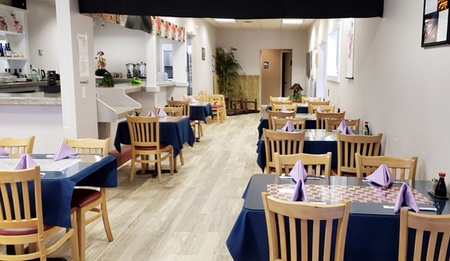
There was no Japanese restaurant in Red Bluff, so it seems that local people are also welcoming them.
“If we were lazy, we would live on the insurance. But we are Showa Era-born Japanese, so we don’t rely on it,” Tomoyo said. “Our original employees waited for us until wereopened the restaurant. We would be happier if we worked.”
Despite the passage of time since the wildfire, Tomoyo sometimes wakes up at night when it is windy.
“I was lucky to be alive,” she said. “If you live, you can start over again. I don’t want to waste my time with sadness. After I reopened the restaurant and met people, I was able to recover. Finally I can smile now. I want to make a restaurant that is loved by the people of Red Bluff.”
Making restaurant T-shirts is their tradition. This time, Tomoyo and Shigeo put the phrase “Ikkyu Strong.”
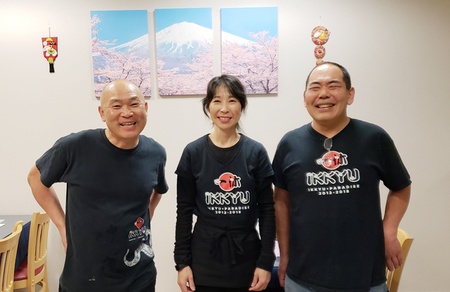
* This article was originally published in The Rafu Shimpo on May 9, 2019.
© 2019 Junko Yoshida, © 2019 The Rafu Shimpo


